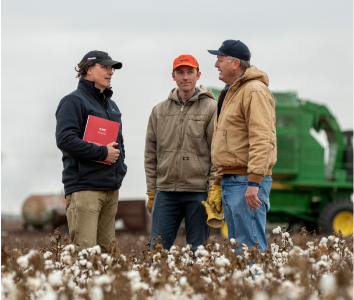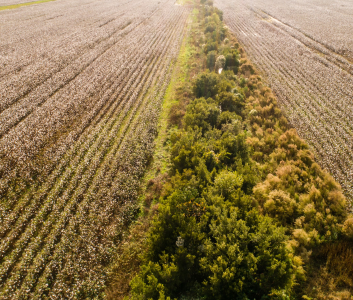e3® Sustainable Cotton
A Sustainable Cotton Life Cycle Starts with Farmers
From seed to bale, the e3 Sustainable Cotton program by BASF provides an entirely traceable, transparent, sustainable cotton supply chain – all stewarded by FiberMax® and Stoneville® cotton growers in the U.S.
Why Join?
Traceability
Field- and bale-level traceability provide proof of your sustainable and regenerative agriculture practices, giving you the tools to tell your story.
Integration
Easy integration with your existing farm management system and local cotton gin software platforms, to make data collection and reporting efficient, streamlined and secure.
Promotion
Expanded market access and awareness, helping to improve the earning potential of your sustainably produced cotton.
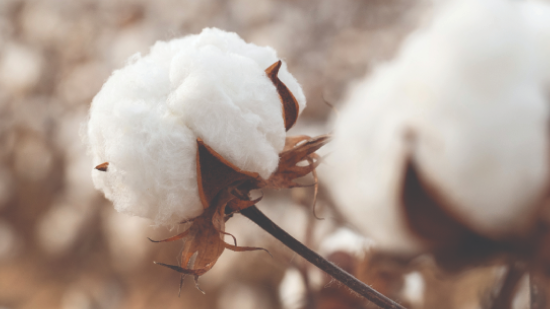
Join the e3 Sustainable Cotton Program
Enroll in one of two ways:
Championing Sustainable Agriculture
Practices in the Cotton Industry
e3 Sustainable Cotton farmers grow in almost all of the U.S. cotton-production states. Every e3 farmer incorporates sustainable agriculture into their operation, including regenerative agriculture practices, to grow their cotton crops. Their traceable cotton tracks specific environmental and social outcomes1 unique to each individual farmer. In 2022, growers enrolled in the e3 Sustainable Cotton program made positive contributions across eight key sustainability metrics.
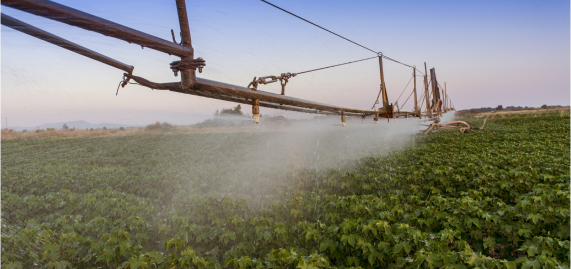
Irrigation Water Use & Water Quality
37% of e3 farmers rely on rainfall instead of irrigation to grow their cotton. The 63% who use irrigation average 261 gallons of water per pound of lint cotton produced.
Pesticide Management & Usage for Cotton Pest Control
Herbicides and other crop protection technology help farmers implement sustainable and regenerative cotton growing practices like reduced tillage and no-till farming.
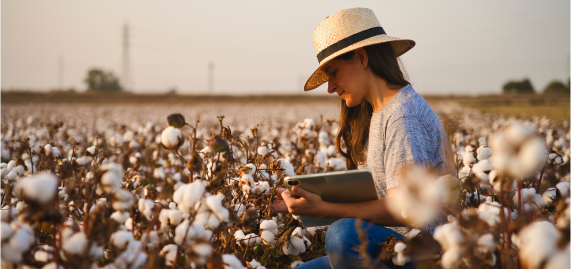
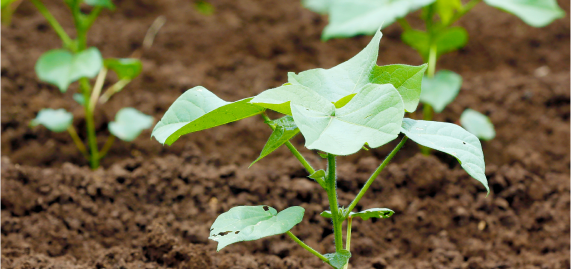
Soil Conservation & Fertility Management
79% of e3 Sustainable Cotton farmers practice reduced tillage to protect their No. 1 asset — the soil. Reduced tillage improves soil health and saves e3 Sustainable Cotton farmers an average of 1.4 tons of soil per acre from erosion loss.
Greenhouse Gas Emissions
Agriculture plays a key role in reducing greenhouse gas emissions, and BASF helps e3 farmers reduce their footprint and increase yields with advanced cottonseed varieties and land management principles.
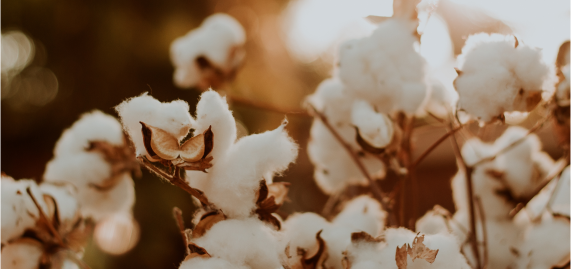
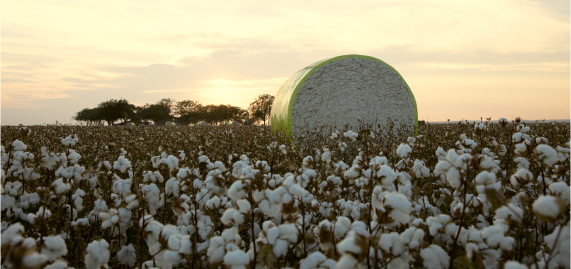
Energy Use & Conservation
By adopting more efficient tools and management practices, e3 Sustainable Cotton growers reduced carbon dioxide emissions by 3,691 tons in 2022, or the equivalent of 18 railcars of coal2.
Worker Health & Safety
e3 Sustainable Cotton farmers meet the demands of downstream buyers by producing cotton in ways that support workers’ welfare and their communities.
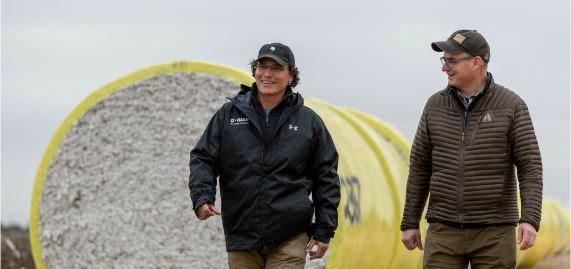
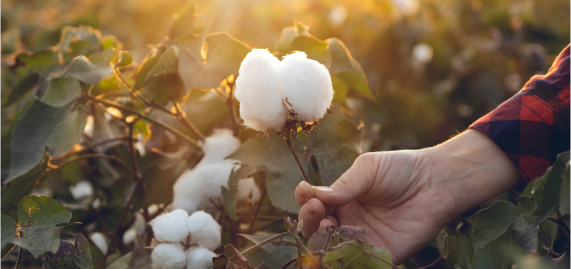
Soil Carbon
73% of e3 Sustainable Cotton farmers incorporate practices like crop rotation, reduced tillage, and cover crops to build carbon in the soil, improve soil quality and limit carbon loss to the atmosphere.
Identity Preservation
The unique environmental and social sustainability results for each bale of e3 cotton are matched to their Permanent Bale ID (PBI), guaranteeing its legitimacy and traceability. The PBI enables brands and retailers to know where their cotton came from and what went into growing it, enabling sustainability claims and linking positive-impact stories to specific farmers and communities.
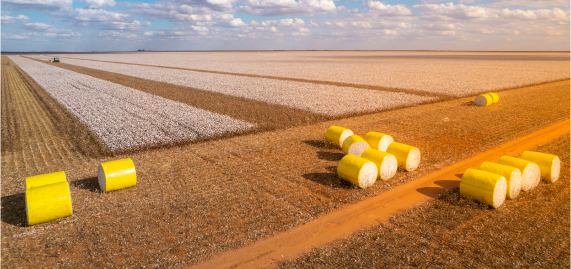
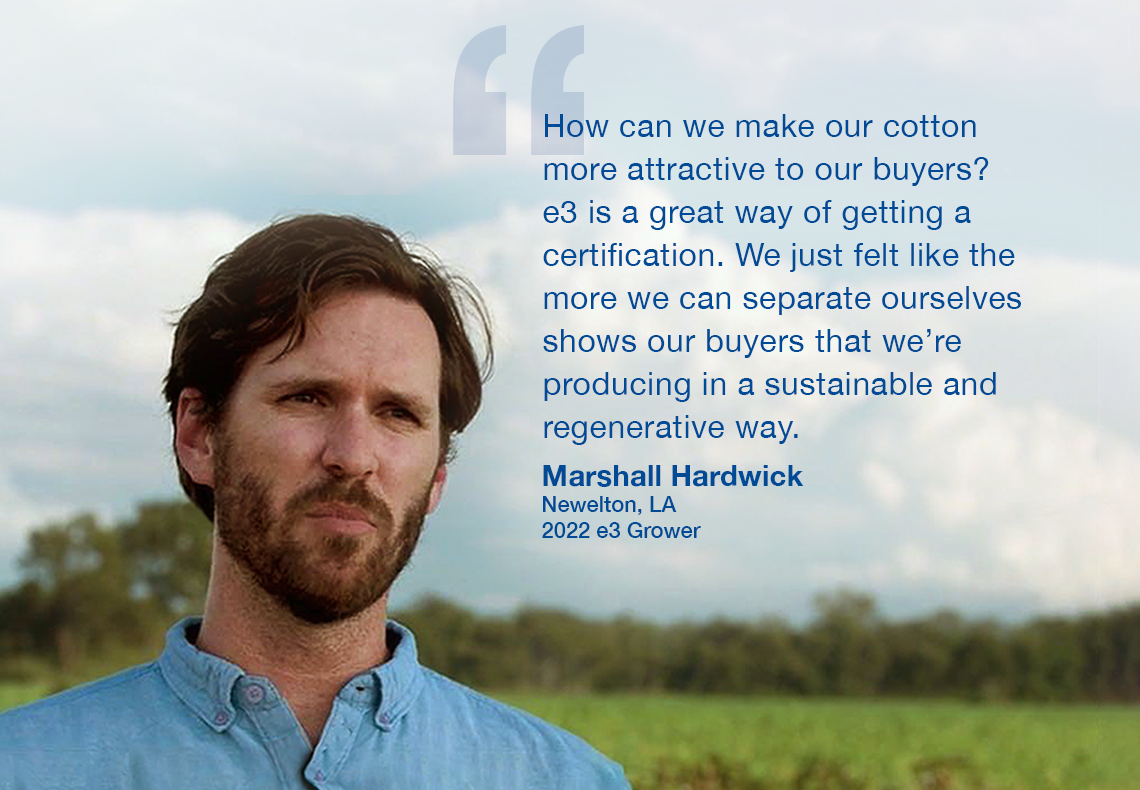
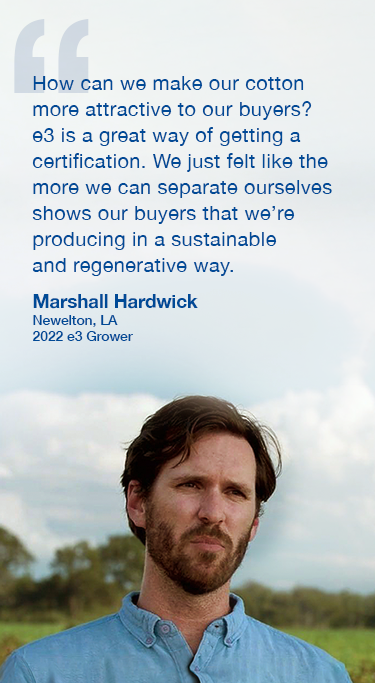
Stay Informed
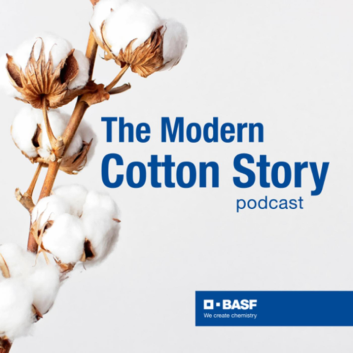
The Modern Cotton Story
Learn all about cotton sponsored by BASF’s e3 sustainable cotton program. Enjoy interviews and episodes hosted by BASF with key players in the cotton, textile, apparel and retail industries.
Connect on Social
@e3sustainablecotton
Learn More
e3, FiberMax and Stoneville are registered trademarks of BASF Corporation. ©2023 BASF Corporation. All rights reserved.
1 Based on 2022 MyFarms data and calculations of the sustainability contributions of e3 Sustainable Cotton growers' production practices.
2 Conversion data from EPA Greenhouse Gas Equivalencies Calculator: https://www.epa.gov/energy/greenhouse-gas-equivalencies-calculator.


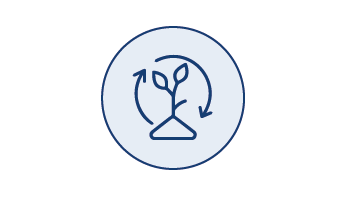


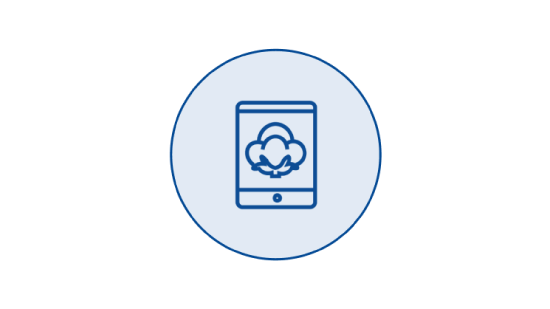
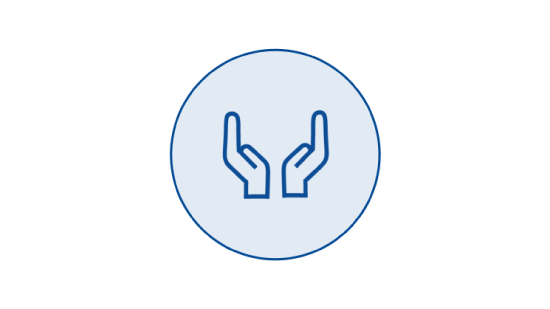
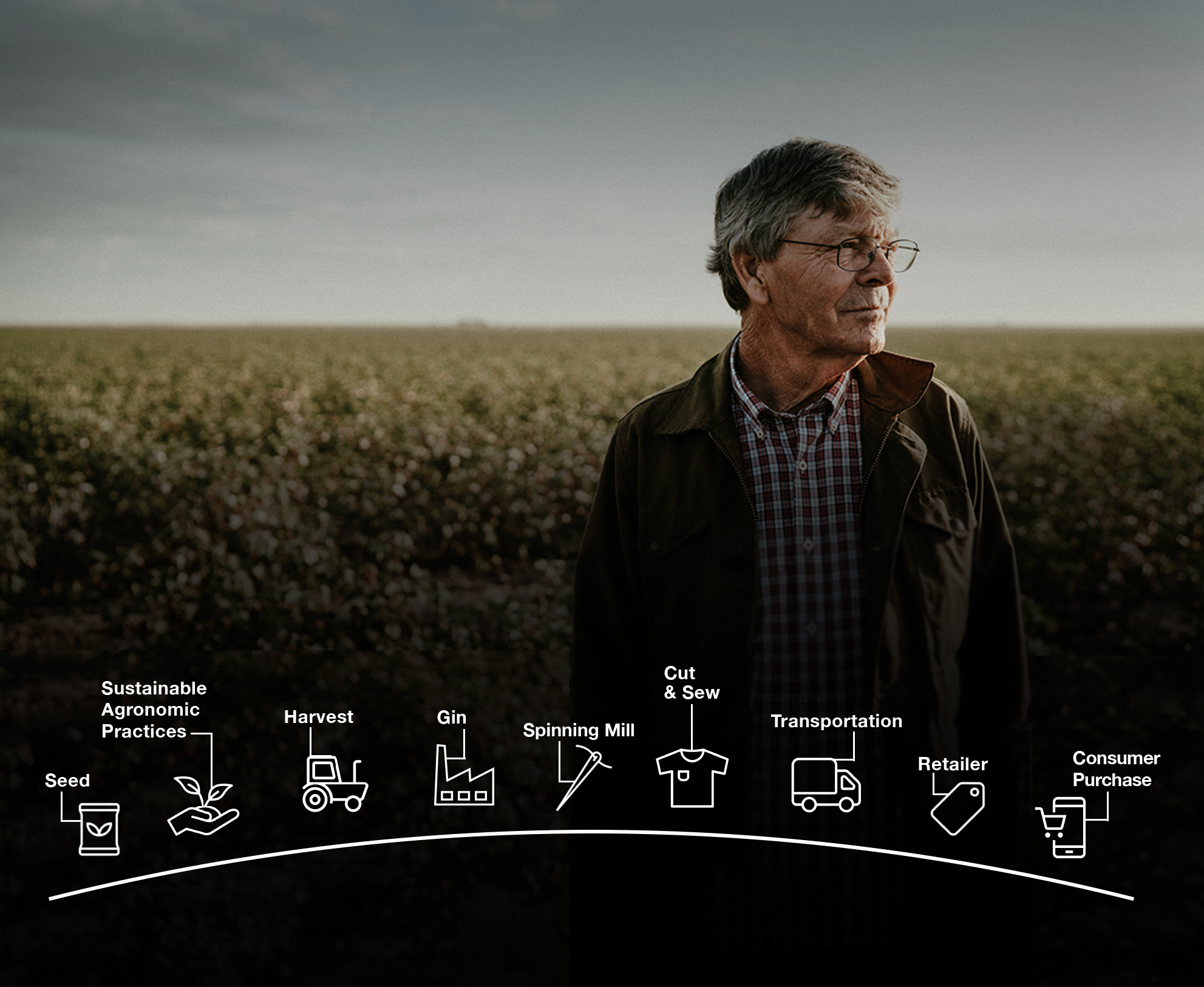
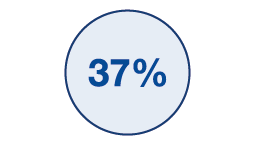
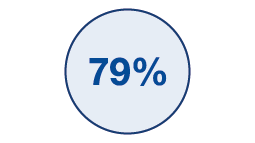
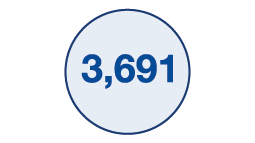
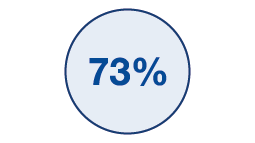



.png)
.png)

